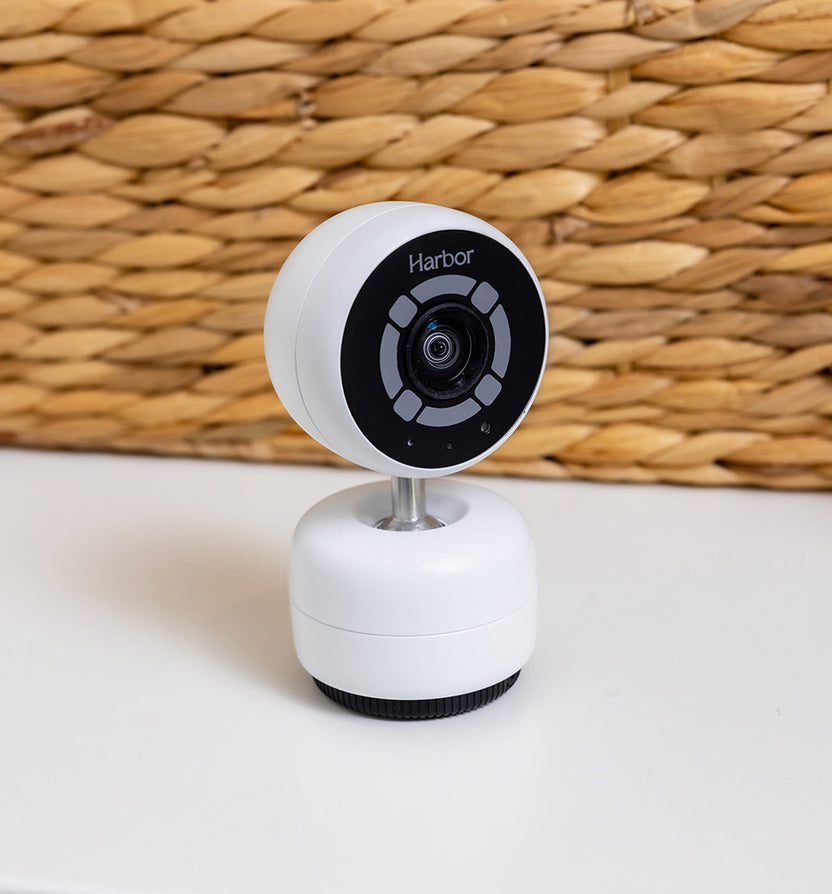
The reality is that parenting isn’t one-size-fits-all. Parents need to figure out what works for them and what works for their child. What worked for one person won’t necessarily work for another, and suggesting otherwise only contributes to harmful stress.
Harbor recently spoke with Harbor Council Member and Bobbie’s Medical Team Lead, Shira Page, RN, NP, CLC, about the ways her professional journey has informed her parenting journey, and vice versa. A nurse practitioner by training focused on endocrinology, Shira became a certified lactation consultant after the birth of her first child and opened a virtual practice at the height of the COVID-19 pandemic. She then joined Bobbie, a European-style infant formula founded in 2018 to give parents more feeding options for their children, as Medical Team Lead.
In her work at Bobbie, Shira oversees clinical education, where she helps parents and medical professionals understand what’s best for their children, combatting feeding-related misconceptions and stigma in the process. While Shira’s work centers on feeding, her perspective, and takeaways are equally relevant to sleep habits.
Read on for Shira’s tips to stay flexible and cut through the noise of early parenthood.
Steer clear of black-and-white thinking
Shira’s work at Bobbie centers on clinical education, specifically focusing on the importance of choice and flexibility. Much like Harbor’s perspective, Bobbie's philosophy is that all parents should feel good about their feeding journey. For some parents, that looks like exclusively formula feeding, for others, it means breastfeeding, and for many, it’s a combination of the two.
Shira refers to this as optionality—educating parents and giving them a choice, rather than forcing them into something that may not work for them or their child.
“One thing isn’t better than another, and they should all be celebrated because parenting is hard work no matter how you do it,” she encouraged.
Ask for and offer support
Parenthood is overwhelming, and it can be hard to know who to trust. “Finding those small nuggets that can root someone in feeling confident in the knowledge they have is really important,” Shira explains. “Information is not always the best gift you can give someone—I think what people really need is support.”
There are myriad resources for parents to learn from, from books to websites to classes to products, but there are fewer tools for asking for support.
Prioritizing a support system and anticipating that you’ll need help can be hard for new parents, but is important. Anticipating and preparing for different levels of care, from a friend who can come over to help with laundry to a therapist who specializes in postpartum transitions, can offer peace of mind when a crisis hits.
Find a trusted source of truth
Shira’s first child struggled to sleep, making her feel like she was doing something wrong. “I took some books out from my postpartum support group, I followed influencers, I was googling late at night, and it was so confusing because everyone was saying different things,” she explained.
Shira ultimately went to a sleep clinic to meet with an infant sleep professional. While she says that the advice wasn’t particularly groundbreaking, “having that one person to turn to, where I could do what they said and if it didn’t work out, I could go back and they’d support me, was game-changing.”
When Shira’s second child began experiencing sleep challenges at nine months old, she again pursued a sleep consultant for the support they could offer and the confidence they could instill in her.
For Shira, choosing one trusted person to partner with as a means of cutting through the noise supported both her as a parent and her children’s sleep skills.
Accept that change is inevitable
Now that Shira’s kids are older and she’s witnessed their development over time, her perspective is different:
“I was constantly trying to fix things and judging the situation we were in during the first few years of parenthood, asking questions like, ‘What did I do wrong? What’s wrong with my kid? Is this going to set them up for bad habits?’” she shared.
“Ultimately, they ebb and flow. You can sleep train at six weeks and things can change a few months later. Taking some of that judgment out is important.”
About Shira Page, RN, NP, CLC
Shira is a Nurse Practitioner and Certified Lactation Counselor, leveraging over a decade of clinical expertise to improve clinician and patient education.
Her career foundation is a Bachelor of Nutrition and Dietetics, followed by a Masters in Nursing from the University of Massachusetts Medical School. Her clinical experience has been focused on endocrinology, women’s health, infant feeding, and holistic, patient-centered care.
She currently leads the Medical Team at Bobbie, an infant formula company. Additionally, she serves as a trusted medical advisor to several forward-thinking startups, championing the expansion of clinician outreach and the development of medically accurate content.
Shira has a passion for improving the experience of what it means to be healthy, both through healthcare professional education and patient empowerment. She lives outside of Boston with her husband and two daughters.




